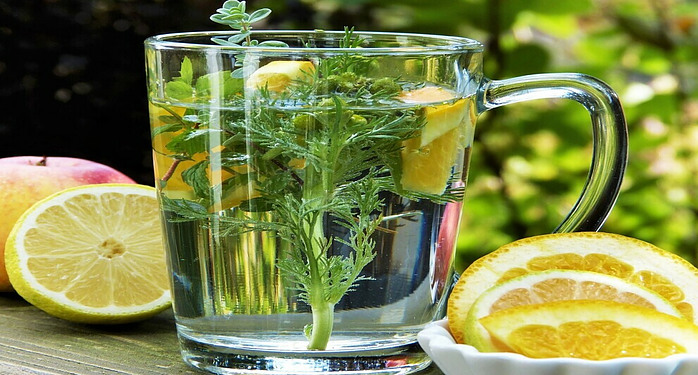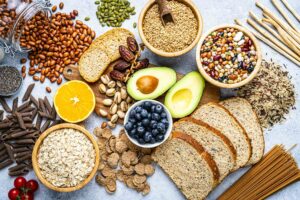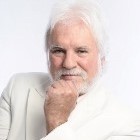Embracing Healthy Aging: The Foundation of Wellness
Understanding the natural aging process | Ways to Stay Healthy as We Age
Many people dread getting older, fearing that they will lose their vitality, independence and joy. However, aging is not a disease or a curse but a natural and inevitable process that can be embraced with grace and wisdom. In fact, aging can really be a great opportunity to enhance your wellness by adopting healthy habits, cultivating positive attitudes and re-defining your meaning and purpose in your life. My wife Penelope and I started homesteading this year! More on that in a minute!
I have always believed that health is, in a very real way, a state of mind and I think this is especially true as we age. Would you agree? The years after 50 can, and should be, the best years of our lives! In this blog post, I will share with you some tips on how to embrace healthy aging and make it the foundation of your wellness. These tips are based on scientific research as well as my own personal experience as a senior who enjoys a high quality of life. None of us are getting any younger after all!
I must say that I have a bit of an advantage. As an athlete in my younger days, I had the honor of being a 2x Canadian champion in the sport of rowing. As a former athlete, I know the value of health and wellness and the role that fitness plays in the maintenance of good health.
Beyond that, my wife and I began homesteading on Canada’s east coast in the spring of 2023. It’s a very physical lifestyle, one that keeps us healthy and strong. Now I know that everyone isn’t going to take up homesteading but, at the age of 71, I truly feel great and so I wanted to share with you some of the principles we observe to keep us healthy and happy. If I have your attention please stay with me!
So today, we’re going to focus on only two things. I’m going to introduce a couple of other topics of importance but just briefly. These topics deserve much more attention than we can give to them here. I hope you will subscribe to our newsletter to stay tuned for all that is offered on this platform. You will be invited to do so at the end of this post!
Today, we’re going to look at the critical importance of staying physically active and, second, we will look at an issue that emerges as we age and what we can do to address it. That issue is the immune system. But first, to keep things in perspective, we are going to take a quick peek at sedentary lifestyles and how this negatively impacts health and wellness.

A sedentary lifestyle
A sedentary lifestyle can have numerous adverse effects on an individual’s health.
Lack of physical activity can lead to weight gain which, in turn, increases the risk of obesity and related health conditions such as heart disease, diabetes and high blood pressure. Additionally, a sedentary lifestyle can lead to muscle atrophy and decreased bone density making individuals more prone to injuries and fractures.
Furthermore, prolonged sitting can negatively impact posture and lead to musculoskeletal issues such as back and neck pain. Moreover, a sedentary lifestyle is also associated with a higher risk of mental health issues such as anxiety and depression.
Overall, the lack of physical activity that comes with a sedentary lifestyle can have far-reaching consequences for an individual’s overall health and well-being. Accordingly, it is critically important for individuals to incorporate regular physical activity into their daily routine in order to mitigate the adverse effects of a sedentary lifestyle and maintain good health.
Now I realize that not everyone is in the same boat. Some, due to illness or injuries suffered in the workplace or in auto accidents may have limitations that others do not. Nevertheless, it is still important to do what you can.
Ways to Stay Healthy as We Age | Hey! Let’s Get Physical
Tip #1: Stay physically active
Remember the song by Olivia Newton John “Let’s Get Physical”? One of the most important factors for healthy aging is physical activity. Here’s the YouTube link to that popular song! If you can see the benefit from getting a little more exercise than you currently do, c’mon along!
Regular exercise can help you maintain your strength, flexibility, balance and endurance as well as prevent or delay chronic diseases such as diabetes, heart disease, and osteoporosis.
Physical activity can also boost your mood, reduce stress and improve your cognitive function. Any discussion of physical activity must include the importance of hydration. The two really go hand-in-hand. Why staying hydrated is so important will be the topic of another post so, for now, we’ll just focus on the two main topics for today.
Strength, flexibility, balance, endurance
By engaging in physical activity on a consistent basis, individuals can improve their muscular strength and endurance which, in turn, can enhance their overall physical performance and reduce the risk of injury.
Furthermore, regular exercise can help to maintain flexibility by keeping the muscles and joints supple and mobile thereby reducing the risk of stiffness and discomfort. Hydration is another key to keeping muscles and joints supple and mobile thereby further reducing the risk of injury.
In addition, exercise can also contribute to improved balance which is especially important for older adults as it can help to prevent falls and maintain independence.
Finally, regular physical activity can enhance cardiovascular endurance allowing individuals to perform everyday tasks with greater ease and efficiency.

Prevention or delay of chronic diseases such as diabetes, heart disease, and osteoporosis.
Chronic diseases are long-lasting conditions that can affect your quality of life and health. Exercise can help you improve your overall health, fitness, and well-being by:
– Lowering your blood sugar levels and improving your insulin sensitivity. This can help prevent or manage type 2 diabetes, a condition where your body does not use insulin properly to control your blood sugar levels. High blood sugar levels can damage your organs and increase your risk of heart disease, stroke, kidney disease and vision problems.
– Strengthening your heart and blood vessels. This can help prevent or manage heart disease, the leading cause of death in the United States. Heart disease is a condition where your arteries become narrow or blocked by plaque, a fatty substance that builds up in your blood. This can reduce the blood flow to your heart and cause chest pain, heart attack or heart failure. Exercise can lower your blood pressure, cholesterol and triglycerides which are factors that contribute to plaque formation.
– Building and maintaining your bone and muscle mass. This can help prevent or manage osteoporosis, a condition where your bones become weak and brittle and more likely to break. Osteoporosis is more common in older adults especially women after menopause. Exercise can stimulate your bones to grow stronger and denser and prevent bone loss.
Boost your mood, reduce stress and improve your cognitive function
Physical activity has been shown to have a significant impact on mood, stress levels and cognitive function. Engaging in regular physical activity, whether it be through exercise, sports or recreational activities, has been linked to the release of endorphins which are chemicals in the brain that act as natural painkillers and mood elevators. This release of endorphins can lead to feelings of euphoria and general well-being, ultimately boosting one’s mood.
Additionally, physical activity has been found to reduce levels of stress and anxiety by providing an outlet for pent-up energy and tension. Furthermore, engaging in physical activity has been shown to improve cognitive function, including memory, attention, and problem-solving skills. This is believed to be due to the increased blood flow and oxygen to the brain which can enhance overall brain function.
I hope you’ll stay with us as the mental, emotional and spiritual aspects of good health and wellness are topics that will receive much attention on this platform as we move forward. Look for the invitation to subscribe to our newsletter at the bottom of this post.
In conclusion, the benefits of physical activity on mood, stress and cognitive function are well-documented and serve as a compelling reason to incorporate regular physical activity into one’s lifestyle.

Improve Balance
Physical activity plays a crucial role in improving balance through several mechanisms. Firstly, engaging in physical activities such as yoga, Pilates and certain forms of dance can help strengthen the muscles in the legs, core, and back, which are essential for maintaining stability and balance.
Additionally, regular physical activity can improve proprioception which is the body’s ability to sense its position in space. This enhanced proprioception can help individuals react more quickly to changes in their environment, thus reducing the risk of falls.
Furthermore, physical activity can also contribute to better coordination and agility both of which are important components of balance.
Finally, engaging in regular physical activity can help improve overall cardiovascular health which can, in turn. reduce the risk of conditions such as dizziness and vertigo which can negatively impact balance.
Cardiovascular endurance
Cardiovascular endurance is a crucial aspect of physical fitness that refers to the ability of the heart, lungs and blood vessels to deliver oxygen to working muscles during prolonged physical activity. It is important for several reasons.
Firstly, cardiovascular endurance is vital for overall health and well-being. Regular aerobic exercise, which is necessary for improving cardiovascular endurance, has been shown to reduce the risk of developing chronic diseases such as heart disease, diabetes, and obesity.
Additionally, individuals with good cardiovascular endurance are able to perform daily activities with greater ease and efficiency, as their bodies are better equipped to handle the demands of physical exertion. Furthermore, cardiovascular endurance plays a significant role in athletic performance.
Athletes with high levels of cardiovascular endurance are able to sustain high-intensity activities for longer periods of time, giving them a competitive edge in their respective sports. Overall, the importance of cardiovascular endurance cannot be overstated, as it not only enhances health and fitness, but also has wide-ranging benefits for daily life and athletic pursuits.

The role of regular physical activity in preserving muscle and bone health
Regular physical activity is one of the most important things you can do for your muscle and bone health. Physical activity helps to build and maintain strong bones and muscles as well as to prevent bone loss and osteoporosis in adults.
Some of the best types of physical activity for your bones are weight-bearing and strength-training exercises which make your bones work harder against gravity and stimulate new bone formation. Examples of weight-bearing exercises include brisk walking, jogging, dancing, tennis and stair climbing.
Examples of strength-training exercises include lifting weights, using resistance bands or doing bodyweight exercises like push-ups and squats. You should aim to do at least 150 minutes of moderate-intensity physical activity per week, or 30 minutes a day for five days a week. You can also do some postural stretching and strengthening exercises to improve your spine health and posture. Regular physical activity can help you to enjoy a better quality of life and reduce your risk of many chronic diseases.
The Significance of Supplementing Immunity
This is a topic we will be covering in much more detail in future posts. For now, a brief introduction to this topic will serve for now. I hope you’ll stay with us for more exciting, new content in the coming days and weeks.
Exploring the changes in the immune system as we age

The immune system is the body’s defense against foreign or harmful substances, such as bacteria, viruses, cancer cells, and parasites. However, the immune system changes as we age becoming less effective and less responsive. Some of the changes that occur in the immune system as we age are:
– The immune system becomes slower to respond to infections. This increases the risk of getting sick and reduces the protection from immunizations. Conventional medicine preaches that the immune system also becomes slower to respond to vaccines as well. We do not believe in vaccines on this platform. Our creator did not program the need for vaccines. We, furthermore, believe that vaccines are harmful and, in some cases very harmful, but that is a topic to be explored in future posts.
– The immune system becomes more prone to autoimmune disorders, in which it mistakenly attacks healthy tissues instead of foreign antigens.
– The immune system produces fewer white blood cells which are responsible for recognizing and destroying foreign antigens. This makes it harder for the body to fight new infections and remember previous ones.
– The immune system produces less complement proteins which are molecules that help activate and enhance the immune response. This weakens the ability of the immune system to clear bacteria and other pathogens from the body.
– The immune system causes chronic inflammation which is a low-grade activation of the immune system that can damage tissues and organs over time. Chronic inflammation is linked to many age-related diseases, such as cardiovascular disease, diabetes, arthritis and Alzheimer’s disease. There are some very good supplements available that can help the body respond to chronic inflammation, restore a robust and vital immune system and restore glutathione levels. Here’s a link to a post that reviews two of the premier immune system supplements available. Included in the review is an overview of the body’s major antioxidant, glutathione, and why it’s important to help the body keep glutathione at an optimum level.
Unlocking the Secrets of Glutathione for Enhanced Health
These changes in the immune system can have significant impacts on health and quality of life in older age. Therefore, it is important to take measures to maintain a healthy immune system throughout life. Some of the ways to do that are:
– Conventional medicine recommends getting regular vaccinations to prevent infections such as influenza, pneumococcal pneumonia, shingles, and COVID-19. The position on this platform is that those recommendations are highly irresponsible;
– Eating a balanced diet that provides adequate nutrients for the immune system such as vitamins A, C, D, E, zinc, selenium, and omega-3 fatty acids.
– Exercising moderately and regularly to boost blood circulation, reduce stress and lower inflammation.
– Avoiding smoking and excessive alcohol consumption which can impair the immune system and increase inflammation.
– Managing chronic conditions that can affect the immune system such as diabetes, hypertension, obesity and HIV/AIDS.
– Reducing exposure to environmental toxins and pollutants that can damage the immune system and cause inflammation.
By following these steps, we can help our immune system stay strong and resilient as we age. This can help us prevent infections, reduce complications, and improve our overall well-being.

Identifying key immune-supporting supplements
One of the best ways to support your immune system is to eat a well-balanced diet that includes a variety of fruits, vegetables, whole grains, nuts, seeds and protein-rich foods. However, some people may have difficulty meeting their nutrient needs through diet alone or may have increased needs due to certain health conditions or lifestyle factors.
In these cases, taking supplements may help fill the gaps and provide immune-boosting benefits. Some of the key nutrients that are important for immune health are vitamin C, vitamin D, vitamin E, B complex vitamins and zinc. These nutrients play different roles in enhancing the function and response of various immune cells such as white blood cells, macrophages and antibodies. They also help reduce inflammation and oxidative stress which can impair immune function.
Vitamin C is a powerful antioxidant that helps protect the immune cells from damage and supports the production and activity of white blood cells. It also enhances the absorption of iron which is essential for oxygen transport and immune function. Vitamin C is found in many fruits and vegetables, such as citrus fruits, berries, peppers, broccoli and kiwi.
However, since vitamin C is water-soluble and not stored in the body it needs to be consumed regularly. The recommended dietary allowance (RDA) for vitamin C is 90 mg per day for men and 75 mg per day for women. Some studies suggest that taking higher doses of vitamin C (up to 2 grams per day) may help prevent or shorten the duration of respiratory infections such as the common cold or flu.
Vitamin D is a fat-soluble vitamin that regulates the expression of hundreds of genes involved in immune function. It also enhances the pathogen-fighting effects of monocytes and macrophages, which are types of white blood cells.
Vitamin D is mainly produced by the skin when exposed to sunlight, but it can also be obtained from foods such as fatty fish, egg yolks, mushrooms and fortified dairy products. However, many people are deficient or insufficient in vitamin D especially during the winter months or if they have limited sun exposure.
The RDA for vitamin D is 15 mcg (600 IU) per day for adults up to age 70 and 20 mcg (800 IU) per day for older adults. However, some experts recommend higher doses (up to 100 mcg or 4,000 IU per day) for optimal immune function and disease prevention.
Vitamin E is another fat-soluble antioxidant that protects the cell membranes from oxidative damage and supports the function of T cells, which are a type of white blood cell that helps coordinate the immune response. Vitamin E is found in foods such as nuts, seeds, vegetable oils, wheat germ and leafy green vegetables. The RDA for vitamin E is 15 mg (22.4 IU) per day for adults. Some studies suggest that taking vitamin E supplements (up to 200 mg or 300 IU per day) may enhance immune function and reduce the risk of infections in older adults.

B complex vitamins are a group of eight water-soluble vitamins that are involved in various aspects of metabolism, energy production, DNA synthesis and gene expression. They also play important roles in immune function by supporting the production and activity of various immune cells and molecules, such as cytokines, antibodies, natural killer cells, and macrophages.
B complex vitamins include thiamine (B1), riboflavin (B2), niacin (B3), pantothenic acid (B5), pyridoxine (B6), biotin (B7), folate (B9) and cobalamin (B12). These vitamins are found in a variety of foods such as whole grains, legumes, nuts, seeds, eggs and dairy products.
I hope you have enjoyed this content. If you have and you would like to learn more about wellness for seniors here’s the link to a post that reviews wellness from a much broader perspective and includes information on maintaining emotional health and the importance of social connections. Here’s the link:
I hope you will stay tuned! If you’d like to be notified as updates are made enter your name and best email in the form below.

Grant Rayner
A very informative article, I’m nowhere near 50 yet but it’s good to know how to pre-empt good habits to get in the right frame of mind when I get there.
Can you explain or elaborate why conventional medicine is irresponsible? I understand the steps to boost your immune system highlighted after this, but vaccines are merely showing an immune system exactly how to fight against specific things… So I’d say it’s best to follow your advice on boosting and keeping a healthy immune system but also have vaccines.
Hey Tony! And thank you for commenting! Yes the earlier you start taking those steps the better really. On the subject of vaccines, humanity is about to find out what has been done. The statistics are starting to pile up. But that is a political debate probably better to have in another year or two…thank you for commenting at any rate. Most appreciated.
Great article! I found the tips on staying healthy as we age very insightful. However, I’m curious about incorporating more specific exercises for flexibility and balance. As someone in their 60s, I’m particularly interested in routines that are gentle yet effective. Could you possibly recommend any such exercises or resources where I can find more information? Thanks for the helpful advice!
Hello Corey and thank you for your comment and question. As we age, the cartilage deteriorates in most of the joints of the body. In the spine, the process is referred to as degenerative disc disease. We are all subject to it, some more than others. Accordingly, the back is, or should be, a focus of concern in any exercise program. This does not rule out cartilage damage in other joints. Knees and ankles take a beating when running, jogging or jumping so a key in all exercise programs is to focus on low-impact exercise that will not aggravate existing deterioration or injury.
As always, hydration is an important component of any exercise program as it helps to keep joints supple and flexible. In any exercise program, it is important to start slowly. A warm up with some mild stretching is recommended. This gets blood into the muscles and will prevent injury. If flexibility and balance is high on your list of priorities, then stretching is an obvious choice. A range of motion exercise such as staying stationary but moving the trunk in a clockwise or counterclockwise direction with arms stretched above the head is a good one. Sensory information from your eyes as you move, (visual inputs) and proprioceptive input from the muscles and the balance organs in the inner ear (vestibular system) will contribute to the maintenance of, and improvement of, balance especially as we get older.
Swimming is not available to everyone year ’round, especially in the winter but, in my view, swimming is one of the best ways in which to stay fit since there is no impact on joints, the muscles are required to stretch and exert force and, of course, the cardiovascular, circulatory and respiratory systems benefit immensely. Swimming is, of course, an aerobic form of exercise that you don’t get with simple stretching or rotational kinds of exercise.
Another form you might want to consider is Tai Chi. It is an ancient form of movement that focuses on the unity of mind and body. In light of your interest in flexibility, balance, gentle but effective, this might be one of the answers you seek. I can recommend Global Wellness Institute. https://globalwellnessinstitut… The site has a section on Tai Chi but, more importantly it is, in my view, a top-tier site that offers a comprehensive coverage of numerous wellness related topics.
I hope this has been helpful and, by all means, if you have other questions, please do not hesitate to ask! Have a wonderful day Corey and thanks again for engaging with this post!
Grant Rayner
I found your article on staying healthy as you age to be a fantastic resource! Your emphasis on maintaining a balanced diet and staying active resonates deeply. I’m curious, have you encountered specific dietary changes or exercises that are particularly beneficial for older adults? Personally, I’ve seen the benefits of incorporating strength training into my routine as I’ve gotten older, but I’m always eager to learn more about optimizing health with age.
Additionally, your advice on prioritizing mental health is crucial. I believe it’s often overlooked but plays a significant role in overall well-being. Have you come across mindfulness practices or mental exercises that have shown notable benefits for older individuals? I’ve found meditation to be immensely helpful, but I’m interested in exploring other techniques. Thank you for sharing these insightful tips on maintaining health as we age!
Hello Pasindu and thank you for your comments and questions! Your kind words are most appreciated. First let me focus on dietary changes. Sugar and refined foods are not your friends. For me personally, my wife and I are working toward food self-sufficiency. We have two apple trees on our property, a huge garden and we are building four large, raised gardens for next year’s planting. Accordingly, for us, we are eating more fruits and vegetables and this makes a huge difference. Store bought foods often contain preservatives, artificial colors, flavors and sometimes it’s hard to know exactly what you’re getting even if you read the labels! Fruits and veggies contain the vitamins and other nutrients that help the immune system stay robust and vibrant. Despite this, I know many people don’t have ready access to fruits and vegetables in the bigger cities. Affordability is becoming an issue for many. Dietary supplements can be helpful if access to nutrition is an issue. I’m a huge fan of physical activity. You mention strength training and, if possible, strength training is something we should all consider as we age. Personally, I can’t curl a 90 lb. bar like I used to but I still do weight training with much lighter weights. That, as you probably know, maintains muscle strength which, by itself, leads to a host of benefits. Finally, yes, I’m a big believer in the connection between mind and health. In my view, the two are inseparable. Meditation is part of my practice but I also employ a host of positive affirmations. I recall advice Louise Hay used to give on self-love. She recommended looking in the mirror and saying to yourself “I love you. I really, really love you” Self-acceptance and a healthy self-image are critical components of wellness. If you are interested in this area, I would strongly recommend study in self-image psychology. In my view, self-image is the basis for all that follows. I hope this has been helpful and I thank you again for your interest in this content.
Grant Rayner